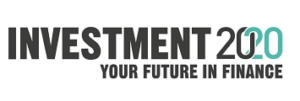I want to focus this month on one particular theme that I outlined in January at the beginning of my tenure: Diversity & Inclusion. This is one of AREF’s five priorities and has been a concern of the Board for a number of years, but it is particularly appropriate to focus on it during Pride Month and in the light of the recent Black Lives Matter protests and the concurrent messages from black investment industry colleagues highlighting the racial discrimination that they have encountered.
As a member organisation AREF inevitably reflects its members and the wider UK property investment industry and I’m therefore going to focus on two levels of activity: firstly, AREF itself and, secondly, what AREF can do within the wider industry.
Firstly, AREF.
When I joined the Board as in independent director in January 2014, it was as lacking in diversity as it could possibly be, and this was a matter of great concern to all Board members at that time. Since then the Board has rejuvenated itself and increased its diversity on a number of dimensions. This will go further with a new Chair and new Board appointments from early July, and the work will continue during and beyond the strategic review of AREF which is now underway.
Another part of the review will be AREF’s committee structures. Most Committees are fairly diverse with regard to gender and less so for ethnicity, but the Management Committee is not. We will be addressing this after the strategic review, and also looking at how we recruit members for Committees and participants on panels, with a diversity lens being integral to this process.
Secondly, what can AREF do in the context of the wider industry?
Outside AREF, the culture of the industry is in the hands of our individual members and many, if not all, are working hard to make real estate a more welcoming place for everybody.
Many members are already active in initiatives such as Real Estate Balance and Women Talk Real Estate, focussed on forwarding the careers of women in the industry and addressing the gender imbalance, particularly at senior levels. AREF is developing its own links with these initiatives.
Something which can exclude people from participating in a workplace is inflexible and inhospitable working practices which don’t allow for different lifestyles and family circumstances. Flexible working was already growing before the lockdown and I think recent weeks have only reinforced how truly flexible we can be while remaining as productive as ever and letting people manage their lives outside work better too. Having realised its value and how it can increase motivation and satisfaction for colleagues, open up a wider talent pool for member firms, and open a wider range of opportunities for talent, I expect to see increased flexibility of workstyles remain when we return to the office.
Having said that, we are all still discovering the best working practices for distributed working, and AREF’s FutureGen Committee has been active in this area. FutureGen represents those in the first ten years of their career and those not in a senior management position. The network as a whole has over 400 individual members. The group has just published a great paper on remote working in a post-coronavirus environment (link to paper), based on a member survey and covering the use of real estate, attracting and retaining talent, best working practices for well-being and how recent events will affect career prospects. The first generation of FutureGen committee members are now rotating off onto other committees and the network is important in rejuvenating AREF and providing challenge to those of us who may have become set in our ways.
As well as addressing bias existing in the industry’s current working culture, one of the most important things that we can do in order to ensure that we don’t have to keep facing this issue in future is to create a strong pipeline of diverse talent coming into the industry. In this regard AREF is fortunate in its membership of the Investment Association, which has put in place some industry-leading initiatives around diversity & inclusion, with two important reports last year: “Black Voices” (link) and “Tackling the Class Ceiling” (link), the latter of which I can personally identify with.

One of the IA’s initiatives which is having a measurable effect is Investment20/20,a multi award-winning talent service with a specific focus on bringing diverse young people into the investment management industry. Since 2014, they have supported over 1,600 young people, school/college leavers as well as graduates, by providing access through the Investment20/20 Trainee Programme across 50 member firms. Investment20/20 has an extensive outreach programme to over 3,700 schools, colleges and universities, aimed at developing the industry’s long-term talent pipeline, with significant outreach into ethnic minorities. 41% of all the young people who have taken part in Investment20/20’s one-year trainee programme at an investment manager have been from an ethnic minority background. In the two pre-employment Think Investments programmes that Investment20/20 has run over the last two years for Year 13 students, aimed at giving them the skills to be applicant-ready for roles in our industry, 30% of the participants were black. And in the 2020 work experience week, 25% of the young people taking part were black. AREF is working with Investment20/20 to expand this model to the real estate sector of the investment management industry.
This outlines some of the current work in which AREF is engaged to make a difference to these issues, both within AREF and in the wider industry. There is more to do and I look forward to working with members in this area. I have already received many ideas since I joined AREF. If you have ideas to contribute which will help us make a measurable difference to the diversity of AREF and of the real estate investment industry, please do get in touch.
Moving on to a different topic, an issue which has come to the fore this month is Government intervention in the landlord-tenant relationship, by which I’m referring not only the moratorium on terminating leases and the banning of some procedures for recovering rent arrears, but also CVAs, which were an issue before the pandemic, and which have recently started to increase in frequency again. There is an overall concern among members and other industry participants that the security of UK real estate income is being undermined and, along with that, its attraction to domestic and overseas investors. This is especially so in a low-bond-yield, low-interest rate environment where property is one of the few remaining asset classes which provides a relatively high level of secure income. A related concern is that some well-financed private-equity-owned tenants are using the moratorium to simply not pay rent, and that money is in effect being transferred from the UK pensions, savings and charities sectors to private equity funds. AREF is working with other property trade associations to develop a lobbying plan to address these issues.
I end, again, by thanking all members for their support of AREF, of each other and of their tenants in these extraordinary times, and thanking the team for their continued support of members and of me.
I hope everybody stays well and I hope that many of us can meet up again in real life before the end of the year.
Best wishes.

